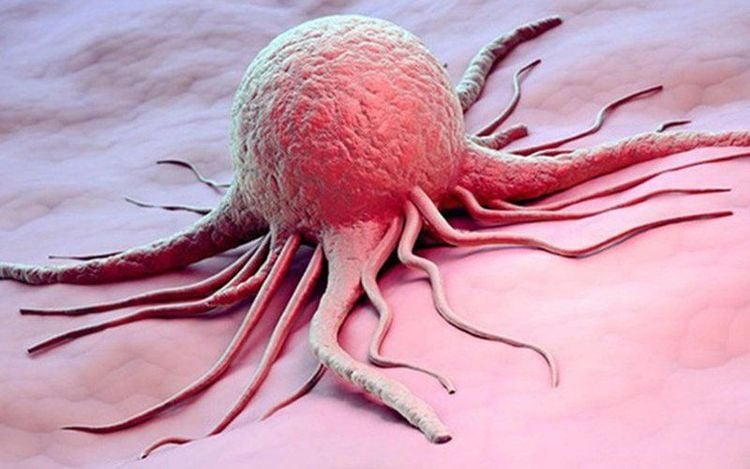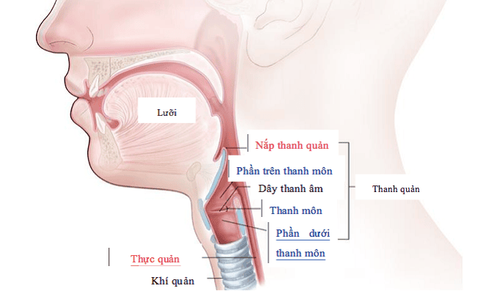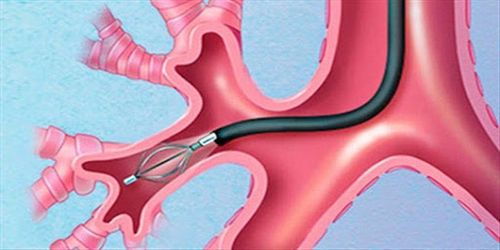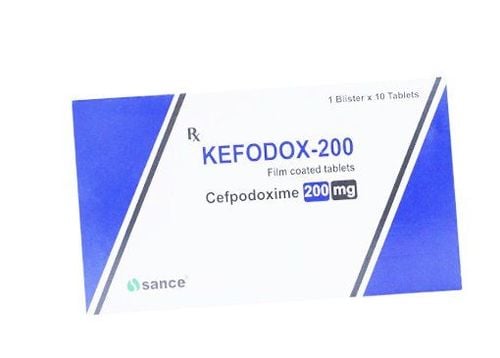This is an automatically translated article.
The article was professionally consulted by Specialist Doctor I Le Van Quang - Ear, Nose Throat Doctor - Department of General Surgery - Vinmec Nha Trang International General Hospital. BSCKI. Le Van Quang is an expert in the field of ENT with 15 years of experience.Vocal cord paralysis is damage to the nerves to the vocal cords, which can occur as a result of brain damage. Paralysis of the vocal cords can cause the voice to become hoarse, difficult to speak, low volume, sore throat when speaking and swallowing, choking...
1. What is vocal cord paralysis?
The vocal cords (vocal cords) are the cords that allow the body to make sounds as well as protect the airways, preventing food, drink, and saliva from entering the windpipe.Vocal cord paralysis (or vocal cord paralysis) occurs mainly due to nerve damage, which can cause problems such as communication. Besides, activities such as coughing and sneezing will take place intermittently, leading to fluid accumulation and infection in the body.
2. Symptoms of vocal cord paralysis
With paralysis of the vocal cords, patients often have clinical symptoms such as:Voice change: The voice becomes thick and difficult to hear, like a loud whisper. Hoarseness.

Liệt dây thanh quản đặc trưng bởi các bất thường về giọng nói
3. Causes of vocal cord paralysis
Vocal cord paralysis occurs due to nerve damage and these injuries can come from various causes, including:Trauma to the chest or neck: these injuries can damage the vocal cords nerves serving the vocal cords, including surgery in this area. Stroke: Brain cells die due to lack of blood flow to the brain. If this cell is involved in vocal cord activity, vocal cord paralysis can occur. Tumor: Tumor can grow around or grow in the cartilage/nerve or muscle of the vocal cords. These tumors can be benign or malignant (cancerous). Either due to inflammation or scarring at the joints of the vocal cords, inflammatory forms of Varicella Zoster, Lyme disease, granuloma sarcodisis, lupus erythematosus.

Các khối u phát triển quanh sụn/ dây thần kinh của dây thanh quản
4. How to diagnose vocal cord paralysis?
Doctors will first base on the patient's clinical symptoms to suspect vocal cord paralysis. Then some of the following tests will be recommended:Endoscopy : Uses a long, thin, flexible tube to look at the vocal cords. A special device with a small camera at the end will be used to look at the vocal cords. Laryngeal Electromyography (LEMG): Measures electrical currents in the laryngeal muscles. During this test, a fine needle is inserted into the vocal cord muscles through the skin of the neck and from there measures the force of nerve signals from the brain to the muscles that control the folds of the vocal cords. Some other tests: In addition, imaging tests and techniques such as X-ray, CT scan, MRI... will be conducted to clearly determine the exact cause of paralysis. .
5. Methods of treatment of vocal cord paralysis
Up to now, the way to cure vocal cord paralysis has been specified into each treatment regimen performed by doctors, there is no way to treat at home. Therefore, you should not try any method without the guidance of a specialist.The treatment of vocal cord paralysis depends on factors such as the cause, severity of symptoms, and duration of the paralysis. Patients may be offered speech therapy or surgery, or a combination of both.

Bác sĩ sẽ căn cứ vào tình trạng bệnh nhân để đưa ra phương án điều trị thích hợp
The treatment of vocal cord paralysis depends on factors such as the cause, severity of symptoms, and duration of the paralysis. Patients may be offered speech therapy or surgery, or a combination of both.
5.1 Voice Therapy Voice therapy is a form of physical therapy for paralyzed large muscles. Therapists will ask the patient to perform a number of special exercises and activities to strengthen the vocal cords, improve breathing, control the voice, and prevent abnormal tension in other nearby muscle groups. vocal cords.
5.2 Surgery If voice therapy cannot fully recover from vocal cord paralysis, surgical intervention is recommended.
Some surgical options in this case include:
Filler injection: The vocal cord muscles can be weakened by nerve paralysis, so the doctors will inject fat, collagen into the vocal cords. or some vocal cord fillers, which help the muscles work more easily and efficiently when the patient swallows, speaks, or coughs. Vocal cord repositioning: This will reshape the folds of the vocal cords, improving vocal function. Isshiki thyroid cartilage orthopedic surgery: Type 1 thyroplasty It can be said that the treatment of vocal cord paralysis depends very much on the cause of it. At the same time, if left untreated, this disease will bring many serious complications, as well as possibly death. Therefore, when symptoms appear, it is necessary to see a doctor as soon as possible to perform examination and treatment.
Any questions that need to be answered by a specialist doctor as well as if you have a need for examination and treatment at Vinmec International General Hospital, please book an appointment on the website to be served.
Please dial HOTLINE for more information or register for an appointment HERE. Download MyVinmec app to make appointments faster and to manage your bookings easily.













